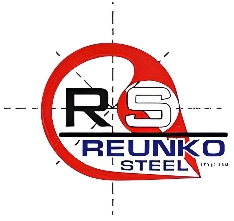Revolutionising Thread Rolling: Reunko Steel’s Innovative Solutions For Precision Manufacturing
Thread rolling is a metalworking process that creates high-quality threads on various materials. Cold forming involves rolling the material between two dies, causing the metal to deform and create a thread. This process is widely used in manufacturing fasteners, such as bolts and screws, and is especially popular in the mining industry to produce anchor bolts.
Mining anchor bolts are an essential component of underground mining operations, as they provide critical support and stability to the roof and walls of the mine. These bolts are typically made from high-strength steel and must withstand tremendous forces and loads. Thread rolling is preferred for producing these bolts because it creates a stronger, more precise thread than other methods.
The thread rolling process starts with a blank or a piece of raw material cut to the desired length. The blank is then fed through a set of dies designed to match the thread profile. The dies rotate around the blank, gradually forcing the material to flow and conform to the thread shape. This process creates a thread that is stronger and more precise than those produced by other methods, such as cutting or chasing.
One of the critical advantages of thread rolling is that it strengthens the material by cold working it. Cold working involves deforming the metal below its recrystallisation temperature, which increases its strength and hardness. This contrasts with other methods, such as cutting or tapping, which can generate heat and weaken the material. Additionally, because thread rolling does not remove any material from the blank, it can produce a thread with a greater cross-sectional area than other methods, further increasing its strength.
Another advantage of thread rolling is that it can produce a thread with a superior finish. In addition, because the material is deformed rather than cut, there is less chance of creating burrs or other defects in the thread. This is especially important in mining anchor bolts, where any imperfections or irregularities in the thread can compromise the strength and reliability of the bolt.
In addition to its strength and precision, thread rolling offers several other benefits to producing mining anchor bolts. For example, thread rolling can create bolts much faster than other methods because it is a high-speed process. This is especially important in the mining industry, where time is often of the essence, and production deadlines are tight. Also, thread rolling is a highly automated process, so it can be easily integrated into a larger manufacturing system, further streamlining production and reducing costs.
When it comes to producing mining anchor bolts, several factors must be considered to ensure the bolts meet the necessary strength and quality standards. These include the grade and type of steel used, the design of the bolt, and the manufacturing process. Thread rolling is an excellent choice for producing these bolts because it can create a thread that meets the exact specifications of the design while also increasing the strength and durability of the bolt.
Contact Reunko Steel for details
At Reunko Steel, we are committed to providing high-quality mining anchor bolts that meet the strictest standards of strength, durability, and reliability. We use only the highest-grade steel and the most advanced manufacturing processes to ensure our bolts are up to the task of supporting the most demanding mining operations. In addition, our state-of-the-art thread rolling machines can produce bolts with a wide range of thread profiles and sizes, making it easy to customize our bolts to meet the specific needs of our customers. Contact one of our representatives today to learn more about our thread-rolling manufacturing
